The Rise of Veterinary Vaccine Hesitancy
How fear and misinformation spills over from people to pets
Here at All Science, we are on the PBS/NPR model: the vast majority of content is FREE, and paid subscriptions allow me to do the research and writing that goes into producing the site, as well as to give back to the community (donations to the Humane Society of Tampa Bay). If you find yourself enjoying these articles, consider becoming a free or paid subscriber 👇
Dear Readers,
Today we're going to discuss a disturbing trend in veterinary medicine: vaccine skepticism and declining rates of immunizations. While the COVID-19 saga has, without a doubt, thrust vaccine controversy into the limelight, skepticism has been growing for years, starting with the measles (MMR) and papillomavirus (HPV) vaccines. A July 2022 review article in the New England Journal of Medicine frames vaccine hesitancy as a complex issue influenced by social media, declining public trust in experts, ideological polarization, and misinformation. And this is not a black-and-white political issue, either—the map below shows how numerous pockets of vaccine hesitancy can be found in across the country, including some traditionally “liberal” or Democratic-leaning cities and counties:
In some ways, modern public health is a victim of its own success. The epidemiologist
recently discussed how our massively successful vaccination campaign to fight measles in the US brought it down from the rampant outbreaks of the 1950s and 1960s to such low levels that many people forget how serious the disease can be and are becoming complacent:Veterinarians are also increasingly seeing vaccine hesitancy among pet owners. One study through the Veterinary Information Network (VIN) in 2021 explored veterinarians' concerns and client resistance regarding dog and cat vaccinations in the U.S. and Canada. Key worries for dogs included anaphylaxis and lethargy, while for cats, vaccine-associated sarcoma is notable. In the UK, annual reports from the animal welfare charity People’s Dispensary for Sick Animals show the proportion of small companion animals (dogs, cats and rabbits) getting their recommended core vaccines when young dropped from 84% in 2016 to 66% in 2019.
Clearly, this trend predates the coronavirus pandemic, but it is very likely being worsened by it. Dr Simon Haeder, the author of a 2023 study on canine vaccine hesitancy, provides his view on how the pandemic impacted these attitudes:
“In my eyes, it increased the intensity of the opposition to vaccines, as well as increased the number of skeptics,” Dr. Haeder said. “We need to start having a well-rounded strategy to address this because as time passes, reversing the inevitable problems, for pets, vets, and humans becomes harder and harder, and we are bound to lose some substantial public health gains we achieve through vaccines.”
Another recent study published in the journal Vaccine ventured further into uncharted territory, asking: Does our attitude towards human vaccines mirror our stance on pet vaccines? The answer they found was a resounding YES. They surveyed 2,200 pet owners in the spring of 2023 and asked about their own views on vaccines as well as for their pets. The results were startling to me:
1 in 5 respondents thought vaccines did not work to prevent disease
3 in 10 thought vaccines were medically unnecessary
2 in 5 thought vaccines were unsafe
53% of survey takers supported at least one of the three positions above
37% were worried that vaccines would cause canine autism → Not only is there no evidence to support this whatsoever, but autism is not even a recognized diagnosis in animals
More than half of pet owners in the survey expressed some degree of vaccine skepticism for their own personal medical care, and this attitude was significantly associated with negative views about veterinary immunizations. Most disturbingly, pet owners who expressed skepticism about getting their own vaccinations were 6% more likely to have an unvaccinated dog and a whopping 27% more likely to oppose mandatory rabies vaccination:
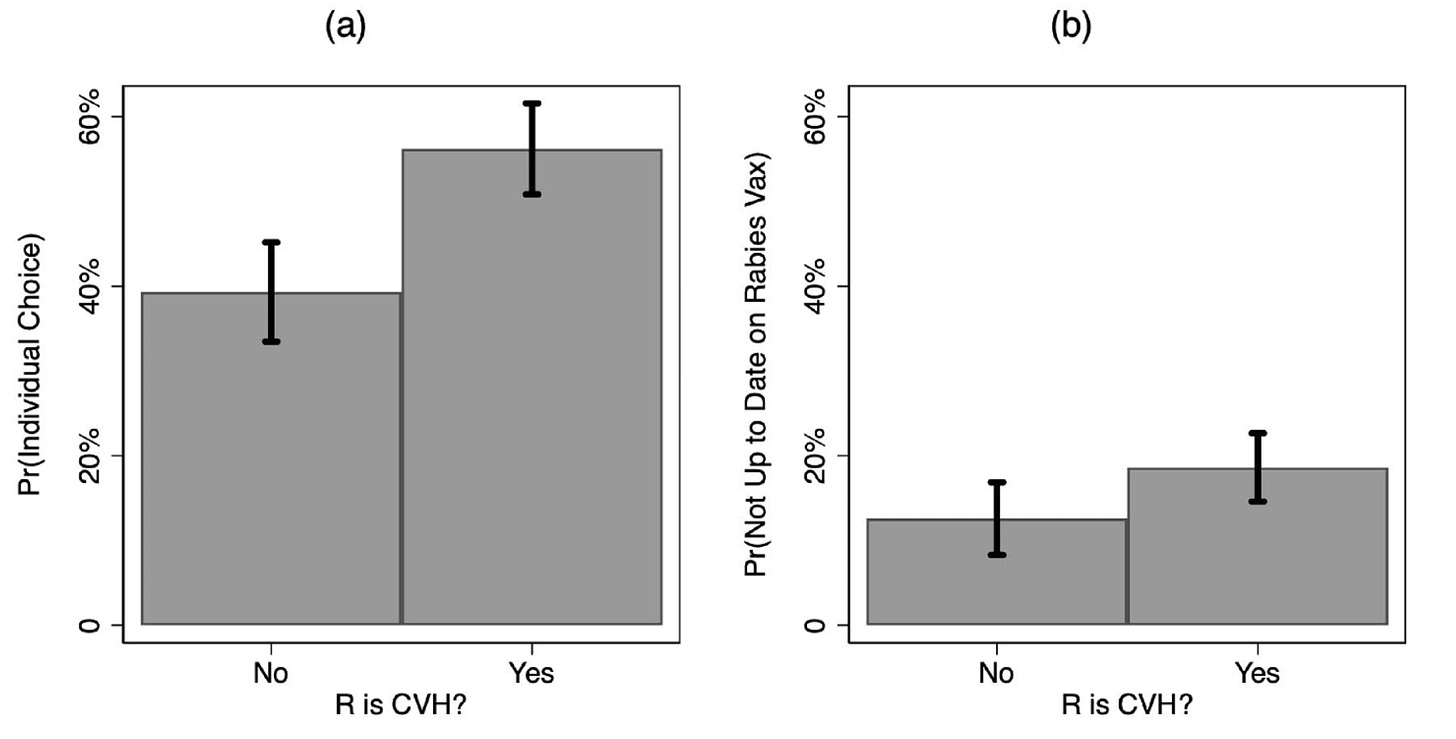
Dr. Haeder’s earlier comments about losing ground on public health victories are dead-on. For one example, take rabies. This terrible virus is essentially 100% fatal and has been a scourge of animals and people since the dawn of time. It still kills roughly 59,000 people around the world every year, mostly in Africa and Asia; many of these cases are caused by dog bites. The only reason we have the luxury of not worrying much about it in North America and Europe is widespread vaccination campaigns have all but eradicated it among companion and farm animals (encounters with infected wildlife like bats and raccoons are the main source for the extremely rare cases that occur).
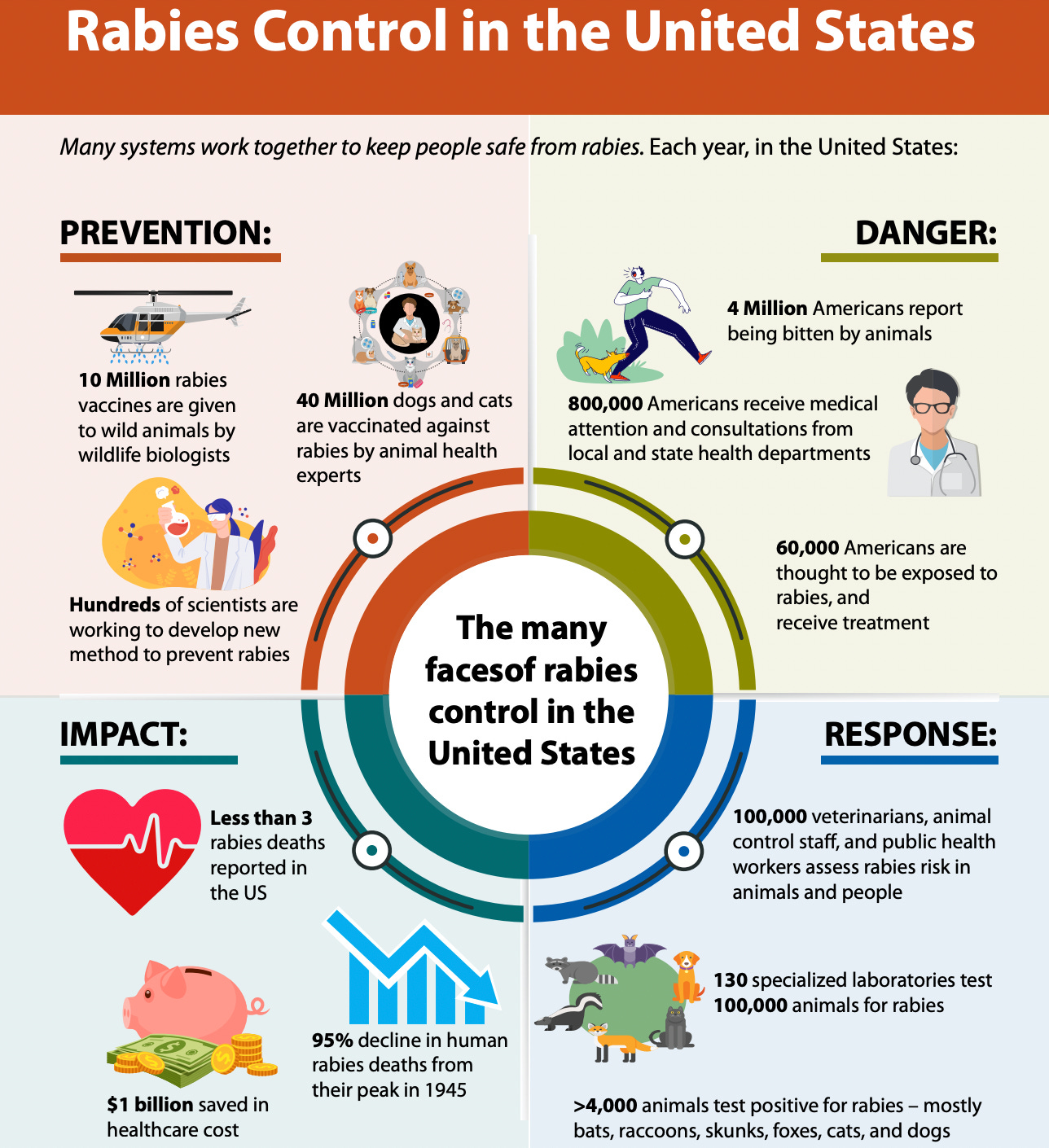
For another example, disruptions in accessing veterinary care during the early stages of covid—especially routine vaccines—led to a surge in cases of canine parvovirus in 2020. This infection is treatable, but care is expensive, and dogs can still die from the disease. Prevention through vaccines is the easiest and lowest cost way to protect pets.
It’s clear that the battle against vaccine hesitancy is multifaceted, extending beyond human health into the care we provide for our pets. The One Health role of veterinarians in demystifying vaccine myths, coupled with a strategy rooted in empathy and education, is more critical than ever. There are multiple resources available to aid this effort: the AVMA provides educational information for clients, and AAHA provides canine and feline vaccine guidelines for veterinarians.
As we wrap up today’s discussion, I will leave you with the words of children’s author Roald Dahl, who penned a famous open letter titled Measles: A Dangerous Illness after his daughter contracted it. His plea highlights a world we could all too easily return to if we fail to be vigilant in our public health efforts.




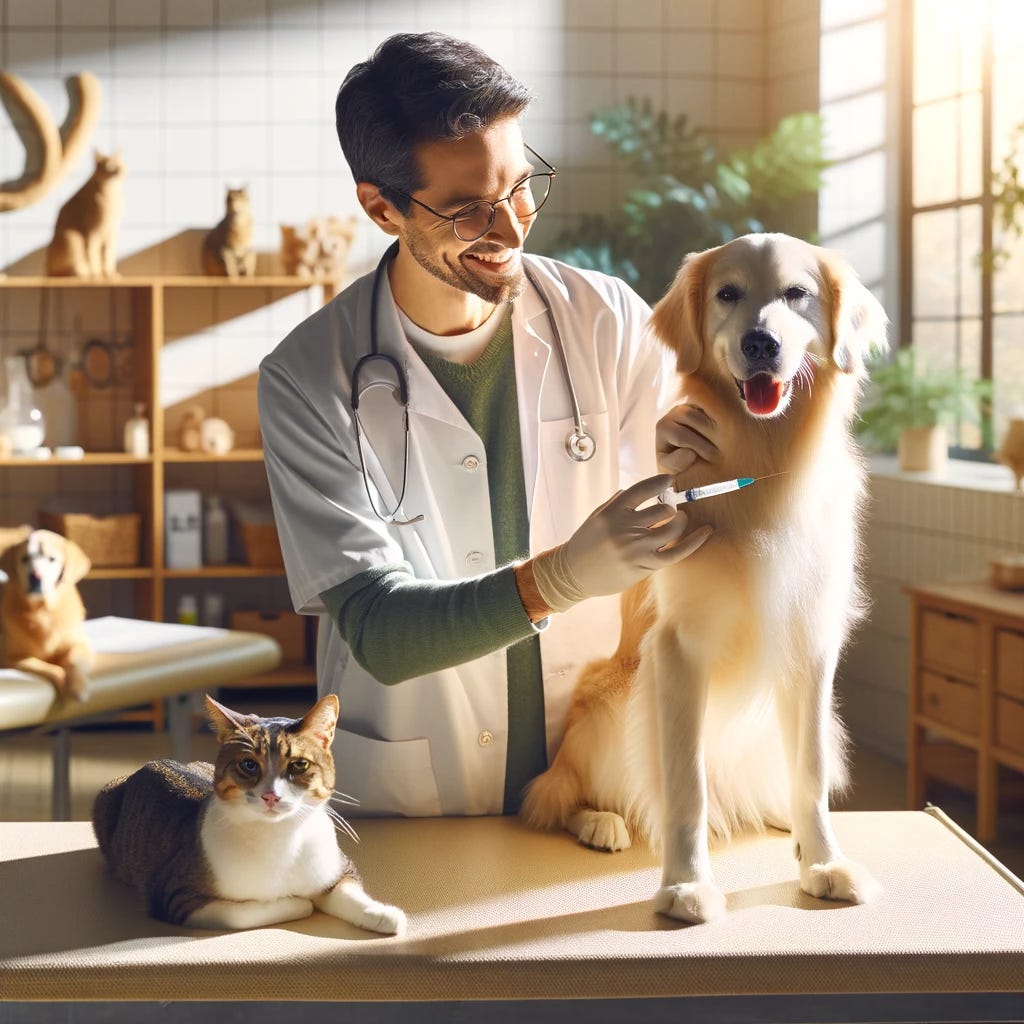
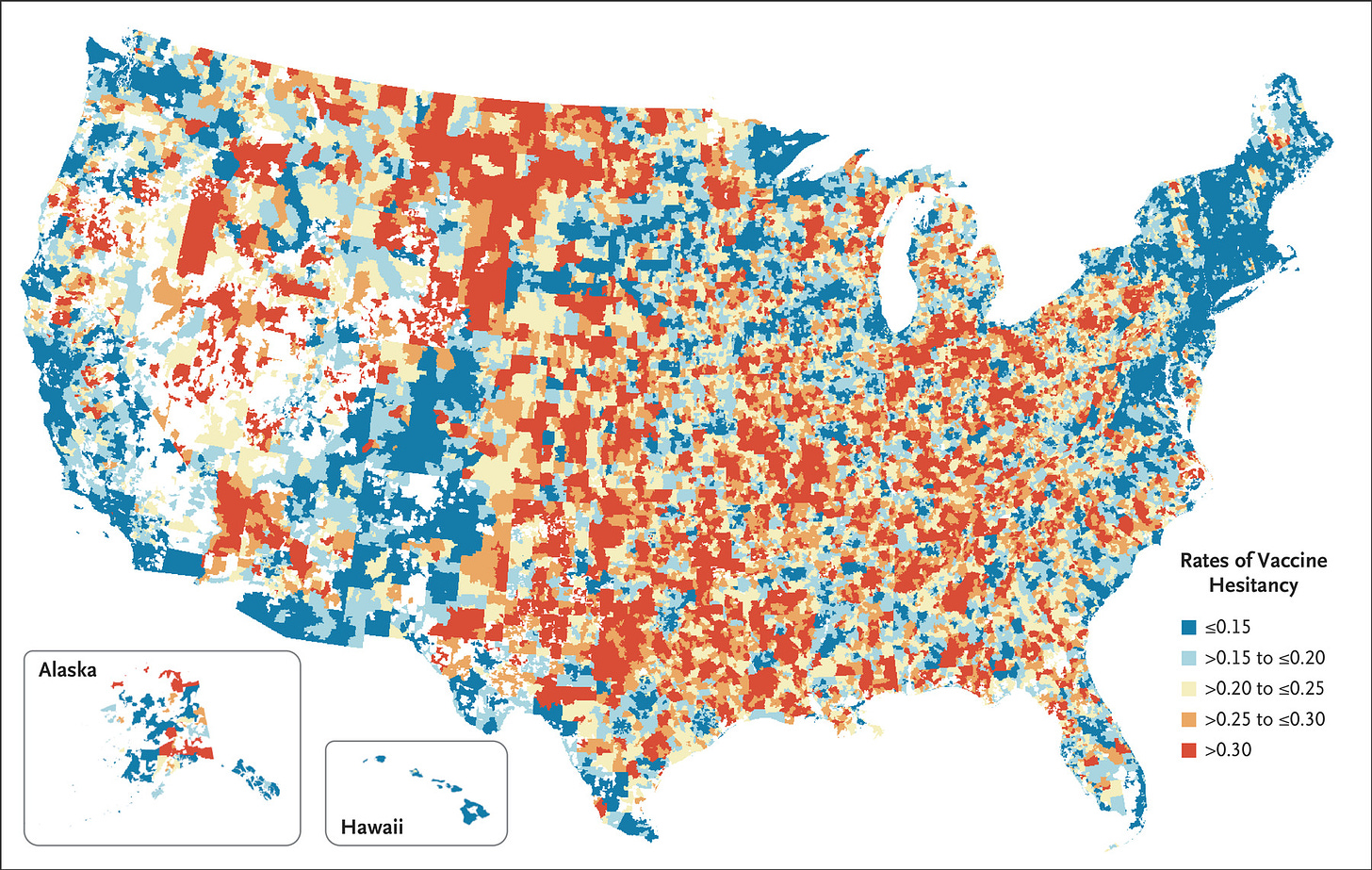
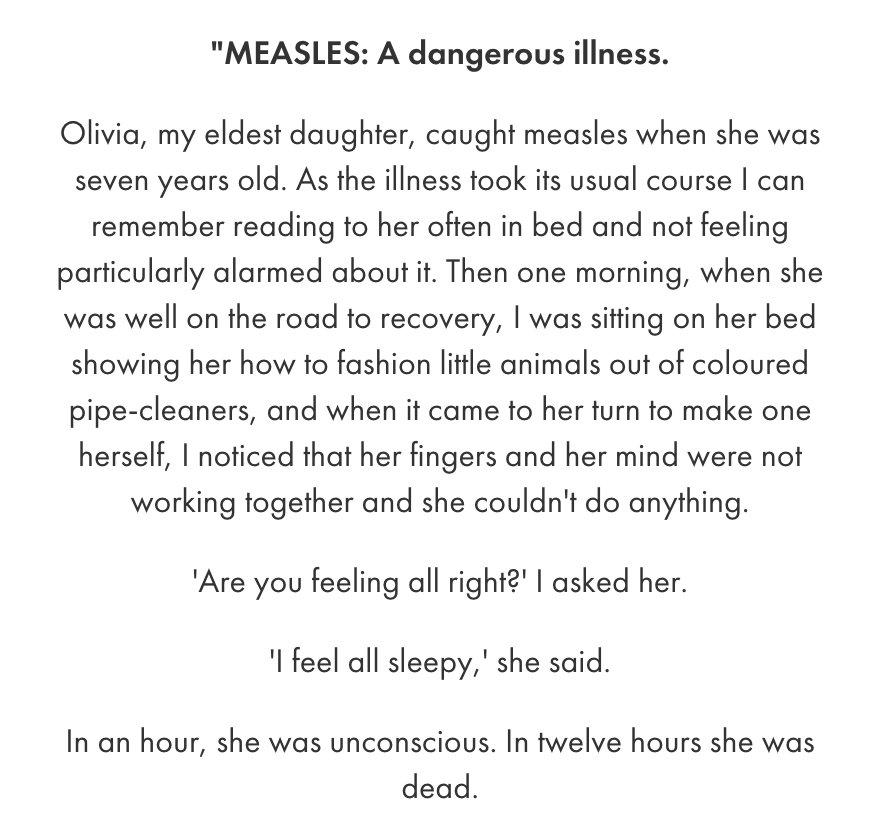

Wow, this is shocking, I hadn’t considered the anti-vaccination sentiments would extend down to our pets. Is the postvaccination sarcoma a thing? Obviously benefits far out weigh risks either way. I wonder how many dog sitting/kennels require vaccination like schools?
When my patients suffer a dog bite, it is usually from a domestic/pet dog and we are mutually reassured the dog “has all shots.“ Always check documentation in the age of anti-vaccination and never assume/trust the dog has been vaccinated against rabies, right?
We found our Rottweiler puppy half dead from Parvo in the middle of a back country road. The vet gave us some subcutaneous fluids and not much hope.
I would never want an animal to suffer like he did.